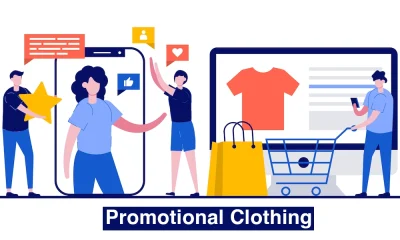Marketing
What Does SEO Stand For? 10 Things to Know About SEO for Beginners
By the year 2020, it’s anticipated that small businesses in the U.S. will be spending at least $80 billion on SEO and SEO-related expenses.
Clearly, SEO is an important thing for businesses that want to experience long-term success.
What does SEO stand for, though? Why does it matter? How does it work?
Read on to learn the answers to these and other popular SEO questions so you can start improving your business and keeping up with the latest marketing trends and approaches.
What Does SEO Stand For?
First, the basics. SEO stands for search engine optimization.
There are a variety of different SEO techniques you can utilize to ensure that your business’s website ranks as high on the SERP (or search engine result page) as possible. This includes things like using specific keywords or writing your website content in a specific way.
Why is SEO Important?
Why do you want higher search engine rankings?
Essentially, the higher your business’s website ranks, the more visitors you’re likely to get. The more visitors you get, the more sales you make and the more revenue your business brings in.
SEO Tips for Beginners
Okay, you can see that you ought to make SEO a priority if you want to continue growing your business and bringing in new customers or clients in the digital age. How do you go about improving your business’s search engine ranking, though?
There are a lot of different techniques you can use, no matter how new you are to the concept of SEO. The following are 10 simple SEO tips beginners can implement today to make a difference:
1. Lengthen Your Posts
One of the easiest ways that you can improve your website’s search engine ranking is to start writing longer blog posts. If you don’t have a blog yet, start one, and then make long-form blog posts a priority.
The longer your content is, the more time people have to spend on your site reading it. The more time people spend on your website, the more recognition you get from search engines and the higher your ranking becomes.
2. Use the Right Keywords
When you’re writing blog posts or working on other content for your website, make sure you’re optimizing these pages using the right keywords.
Using the right keywords will increase the likelihood that someone will come across your website when they’re searching for information about a particular subject.
There are lots of free keyword research tools that will help you decide which keywords you ought to use.
3. Optimize Your Title and Headings
Include your primary keywords in your titles and headings to help with your page ranking. You should also make use of different heading tags to organize your content and make it easier for people to navigate.
Use the <h1> tag for the title of your page. Then, use <h2> and <h3> tags to help you organize the rest of your content and make it easier for people to navigate their way through it.
4. Optimize Your URLs
The URLs for your webpages and blog posts should be easy to read. The simpler and more readable they are, the more recognition you’ll get from search engines.
A URL for a page that looks like this — https://www.mywebsite.com/my-first-post — is going to rank higher than a URL that contains a bunch of random numbers and letters and isn’t easy to categorize.
5. Refresh Old Content
If you have a lot of great blog posts on your website, you can refresh them to help boost your page ranking.
Go back to some of those old posts and update them with new information. Then, republish them as new posts on your site.
6. Link to Other Websites
Linking to other websites (this is known as outbound linking) helps search engines to recognize your site as one that’s putting out trustworthy and credible content.
Make sure you’re linking to relevant websites, though, such as industry experts or studies that back up your claims.
7. Link to Your Website Pages
Link to other pages on your own website (this is known as internal linking) as well.
This helps to keep people on your website longer and increases the number of page views other pages on your site get. It also increases the likelihood that people will take an interest in and purchase your products or services.
8. Optimize Your Images
Remember to optimize your images, too. Use your primary keywords in the image title, description, and alt text to help boost your ranking and make your posts easier for people to find when they’re searching for something online.
9. Utilize Social Media
Make sure you’re working on your social media presence, too. Sharing your blog posts and web content on social media will help more people to find their way to your site.
Make sure that it’s easy for other people to share your content on social media, too. Include social sharing buttons and display them in a prominent location to encourage shares and links back to your site.
10. Don’t be Afraid to Ask for Help
Finally, don’t be afraid to reach out to professional SEO services and ask for help.
The world of SEO is always changing, and a lot of research is necessary to stay on top things and make sure your website is working for you. This creates a lot of extra work that you might not be able to handle on your own.
Having a professional helping with your SEO efforts will ensure you’re using the most up-to-date and effective techniques. It also frees you up to focus on other aspects of your business that only you can handle.
Learn More About SEO Today
You know have answers to important questions like “what does SEO stand for?” and “why is SEO important?”
Now that you have this information and understand the basics of how to improve your website’s SEO, are you ready to take things to the next level?
If you’re ready to start expanding your SEO knowledge, we’ve got you covered.
Check out the marketing section of our site today. You’ll find all kinds of helpful information there on SEO and other essential digital marketing techniques.






